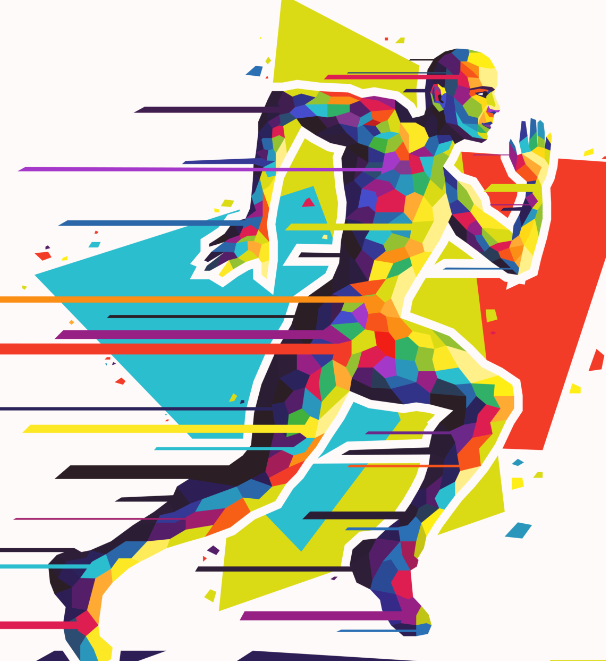
As consumers in an advantageous society that easily provides us with our basic needs in life, we are now moving from an experience economy (Starbuck’s, IMAX, a spa day, Pirates of the Caribbean, The RedZone) to a new personalized level. Consumers are now looking for experiences that do more than just enthuse, engage and entertain. Many are now looking to be transformed.
In their 1995 book, Joseph Pine and James Gilmore accurately predicted this evolution from an Experience Economy to a more personalized Transformation or Hero’s Journey Economy. Across all age groups, this Hero’s Journey Economy is now taking hold as people search for things and experiences to improve and transform their lives.
Movements like the Quantified Self, Mindfulness, and the growing interest in Lifehacks all appeal to consumers who want to own and transform their world. This phenomenon goes beyond the Fitbit and self-help to a growing cross-demographic consumer base compelled to make themselves and the world they live in better.
Quantified Self the global self-monitoring health technologies and apps are expected to grow to be $18.8 Billion within two years.
The Tim Ferris Show, this first business podcast to exceed 100,000,000 downloads deconstructs habits of world-class performers that can be applied to people’s everyday life.
Headspace A meditation app with 400,000 monthly subscribers and a company valuation of $250 Million.
CrossFit A high intensity, no-frills fitness phenomena with over 10,000 company affiliates, many with waiting lists for their introductory classes.
MOOCs Massive Open On-line Classes. Stanford offered a free online course, Introduction to Artificial Intelligence, expecting about 1000 students to sign up -160,000 people registered for the class. Khan Academy, started by one person teaching his cousin, now has backing from The Gates Foundation and course content translated into 36 languages.
Soylent — A healthy bioengineered food product that is packed with essential nutrients and offers 20% of daily requirements with nothing to prepare or cook.
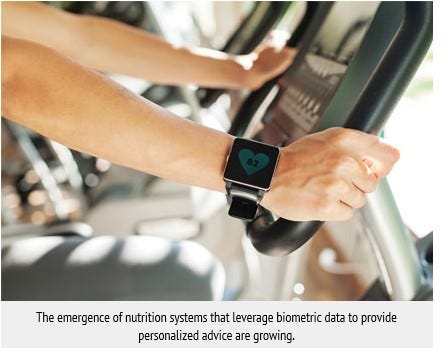
Check out this quote about how the transformation economy will impact the food industry.
“This evolution of eating is being led by many developments, including, understanding our bodies at a cellular level, the creation of affordable and accessible biometric testing and monitoring tools and expanded options for curated food preparation and delivery. The next frontier in nutrition will be about re-configuring diets according to an individual’s specific physiology, lifestyle and health goals.”
The above quote is not a prediction from some food radical or futurist making wild claims about a topic with which they are unfamiliar. These comments are from a talk given last year by Denise Morrison the Former CEO of Campbell Soup.
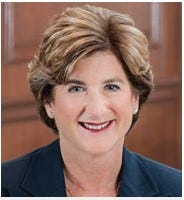
Denise Morrison — Former CEO of Campbell Soup
Ms. Morrison at the Consumer Analyst Group of New York Conference identified the personalization of health and the use of nutritional systems and biometric devices as a major trend impacting the food industry.
There are some companies and brands that are naturally set up to participate in the transformation economy. Nike has invested millions in apps and dashboards that promise to be personalized partners in consumer’s journey to augment and enhance their life.
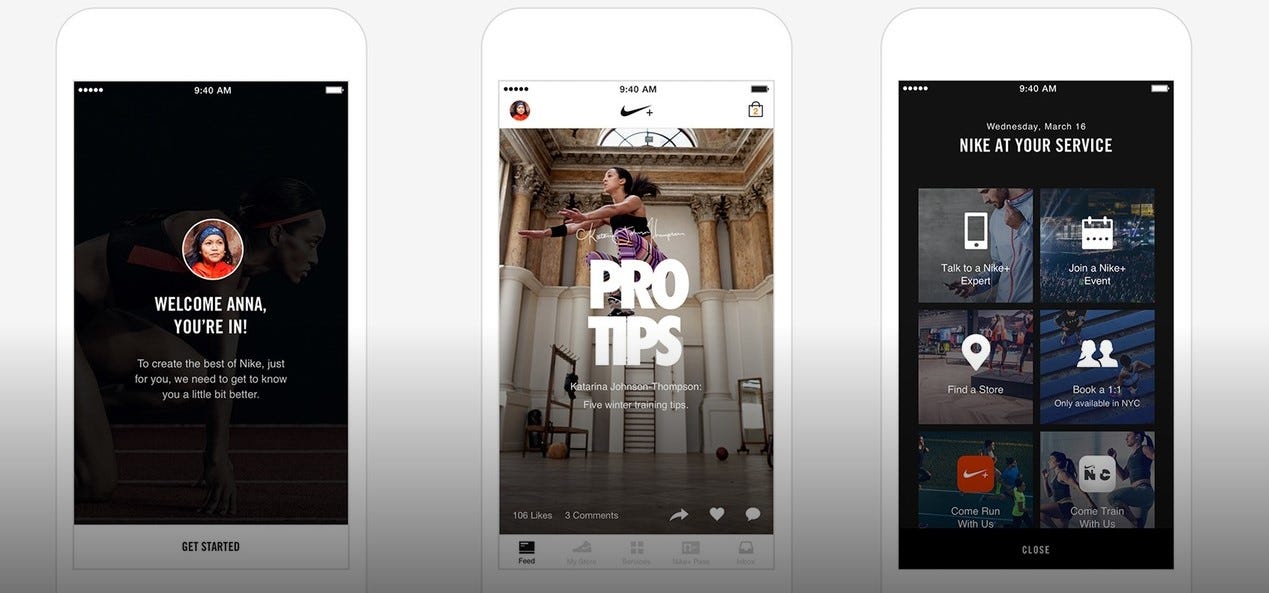
Not every company has products or services that intuitively lend themselves to this transformational trend.
Note this website below that asks their consumers to “GO FURTHER”. It provides dozens of workout routines, advice on building mental toughness and sporting event calendars. They also sponsor local push up and pull up contests across the country.
What product do you think they sell?
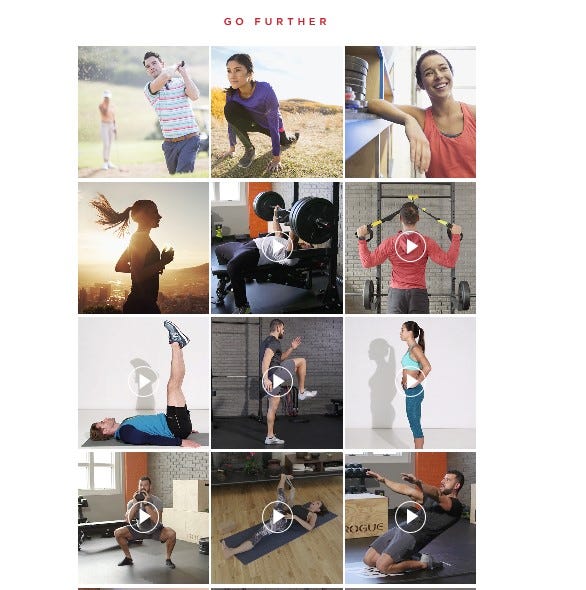
It’s Beer!
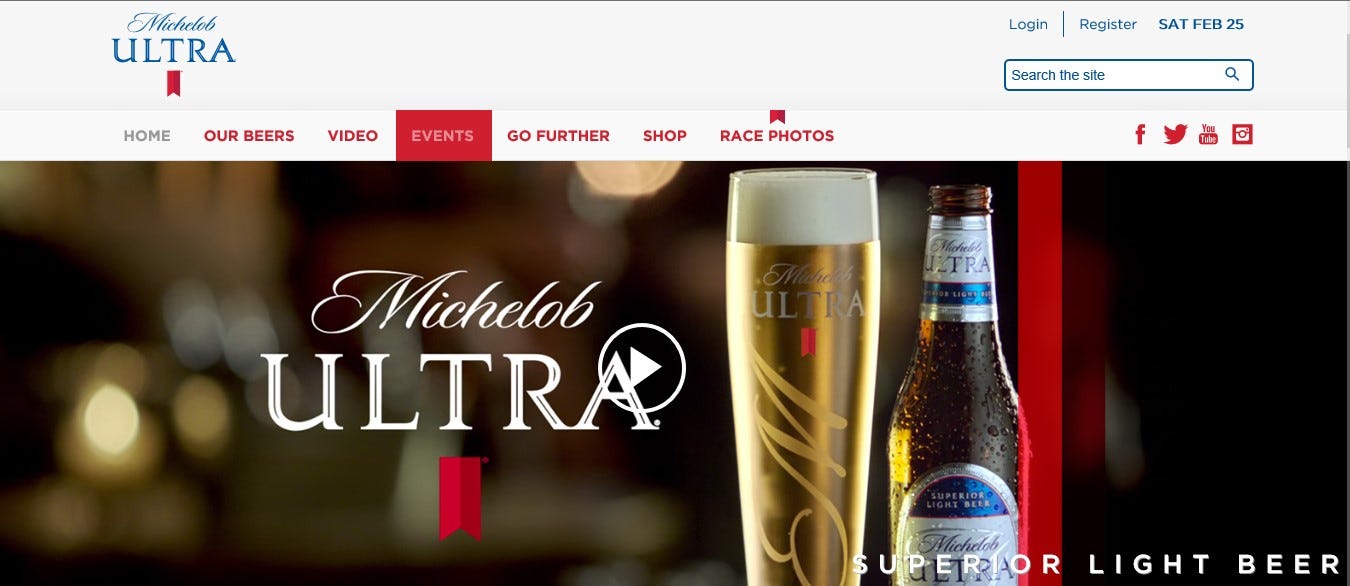
The strategy of positioning their brand as a beer that provides a balanced indulgence to high performers appears to be working from Michelob Ultra.
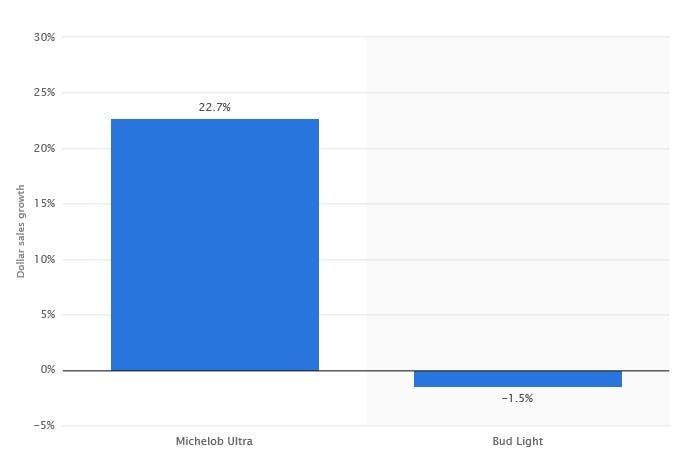
Michelob Ultra results for 2016
The total size of the prize for brands tapping into this movement is still unclear. Stephen Kotler, New York Times best-selling author of The Rise of Superman, estimates the current global spend on enhancing cognitive abilities section of the Transformation Economy is a $4 Trillion business and growing quickly.
The movement into this new economy is being accelerated by a convergence of different technical advancements.
1) Machine Learning / AI — The ability for computers to manage big data will allow for real-time guidance on performance and nutrition from mobile virtual agents.
2) More advanced /affordable biometric devices — Sensors that can monitor and guide people across a broadband of new breakthrough cognitive and physical metrics.
3) Virtual Reality — advances in VR will allow for easier access and more robust “flow” states where cognitive abilities can be 5X greater than normal
4) Performance and Cognitive enhancing medicines/practices — DARPA, Navy Seals and private companies (like Google) are all exploring techniques, treatments, and drugs that can safely deliver augmented performance.
Being able to hitch a ride on this transformation trend can yield huge benefits. Having a brand that is an aid or partner in a consumer’s transformational journey makes a brand sticky and often can compel significantly higher price points. Also renting space in the minds of people pursuing these life-altering treks creates avid and vocal fans of a product.
Questions to ask for tapping into the Hero’s Journey Economy
1) How does a consumer-facing product or service lend itself to personal transformation?
2) Are there opportunities to enhance the portfolio to appeal to these performance journeys?
3) What investments, partnerships or alliances can be made with companies/brands to enable access to more transformational consumer engagements.
For interest in Keynote speaking on this topic, contact www.theherosjourneyeconomy.com
Sources: The Experience Economy, Stealing Fire, Nike -Business of Fashion, Campbells — Food Business News, Michelob results- Statitica

